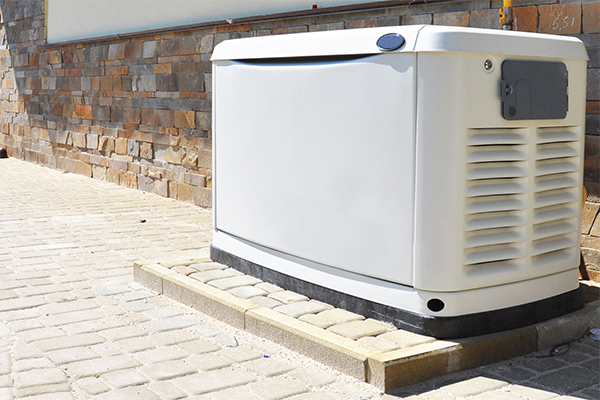Can Your Standby Generator Power Your Whole Home?

A standby generator can be a lifesaver if you’re caught unexpectedly without power — whether in a storm, grid failure, or other emergency. But a frequent query among homeowners is:
“Will a standby generator be able to power my entire house?”
It depends on several factors, including how much energy your home uses, the size of the generator, and how much backup power you think you need. In this blog, we will explain everything you need to know to choose the right one.
What Is a Standby Generator?
A home standby generator is a permanent backup power solution that automatically operates your household’s electrical system in case of a power loss. Unlike the portable variety, these generators are hardwired into your home’s electrical panel and typically run on natural gas or propane. Properly maintained and gassed up, they can run for days.
Whole-House vs. Essential-Circuit Generators
There are two methods of setting up a standby-generating system:
Whole-House Backup: This configuration keeps the generator humming and can energize all of your home’s circuits—lights, HVAC system, refrigerator, washing machine, sump pump, Wi-Fi, etc. It is smooth and comfortable to wear and can be worn throughout power outages.
Backups on Essential Circuit (Partial): For example, this less expensive setup energizes only specific “critical” circuits—a refrigerator, a heating system, and lighting. It isn’t a comprehensive solution but will keep your home working in a crisis.
Does your generator accommodate all your needs?
The solution can be found in the size of your generator, given in kilowatts (kW).
Smaller Homes: Could even get away with just 7–11 kW to run essentials.
Medium Houses: Typically require 12–20 kW for close to whole-home coverage.
Big Houses: Up to 22 kW for your whole house backup.
If your house’s total electrical load is greater than the generator’s wattage, you’ll either need a larger unit or choose which systems to power.
Calculating Generator Size: What Generator Do I Need?
To assess your needs:
- Enumerate Key Equipment (freezer, HVAC, sump pump, etc.).
- Calculate total wattage
- Consider future power usage
- Check with an authorized installer who can do a load calculation
Most homeowners choose load-shedding units, which smartly turn power to different circuits on and off to prevent overload while ensuring the generator runs at capacity.
Fuel Source Considerations
Most standby generators run on:
- Natural Gas – Constant fuel supply, proper for city dwellers.
- Propane (LP Gas) – Best for homes in rural areas that may not be connected to natural gas lines.
Fuel supply and tank capacity can also determine how long your generator can run without a break — an especially crucial consideration for whole-house power during prolonged outages.
Advantages of Whole-House Protection
Continuous comfort: Protect your HVAC system, kitchen appliances, and electronics from surges.
Home protection: Stop basement flooding, frozen pipes, and food spoilage.
Peace of mind: Stay safe and connected even with no power.
Final Thoughts
Well, can a standby generator keep your entire home up and running?
Yes—if it’s the right size and professionally installed. Whole-house generators provide full peace of mind, but they cost much more upfront as well. However, the peace of mind for many families when the lights go out for an extended period justifies the investment.
If you are considering a home standby generator, call us today for a free assessment and load evaluation. We will help you select the right solution for your home’s size, power needs, and budget.


